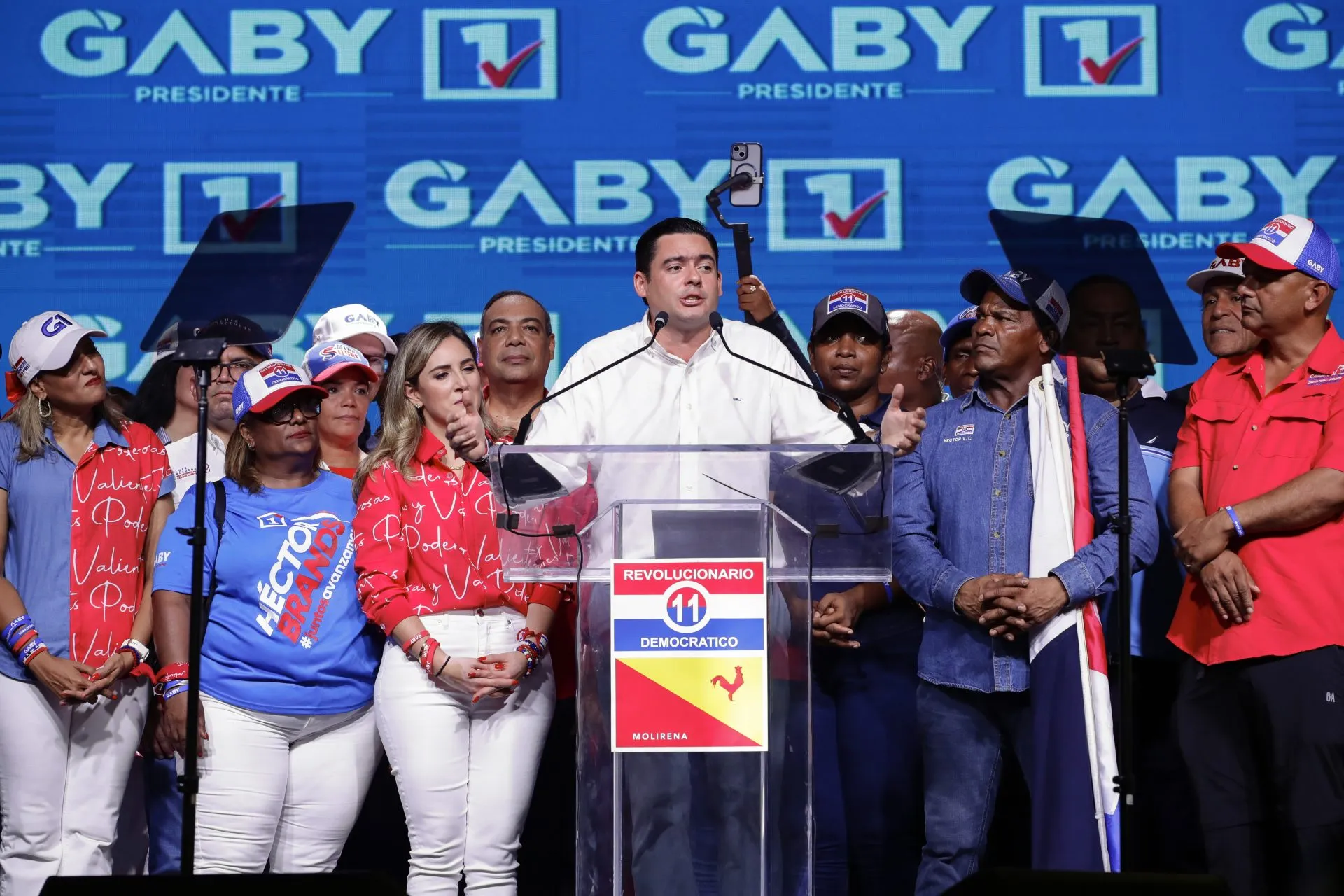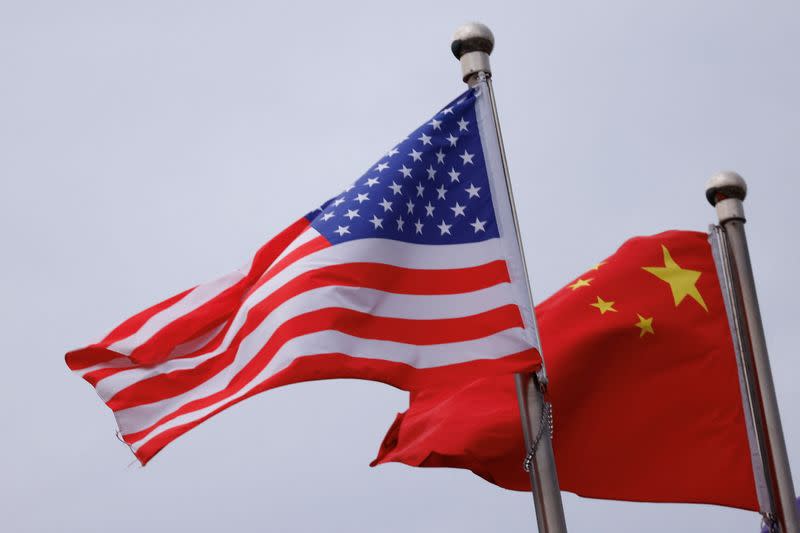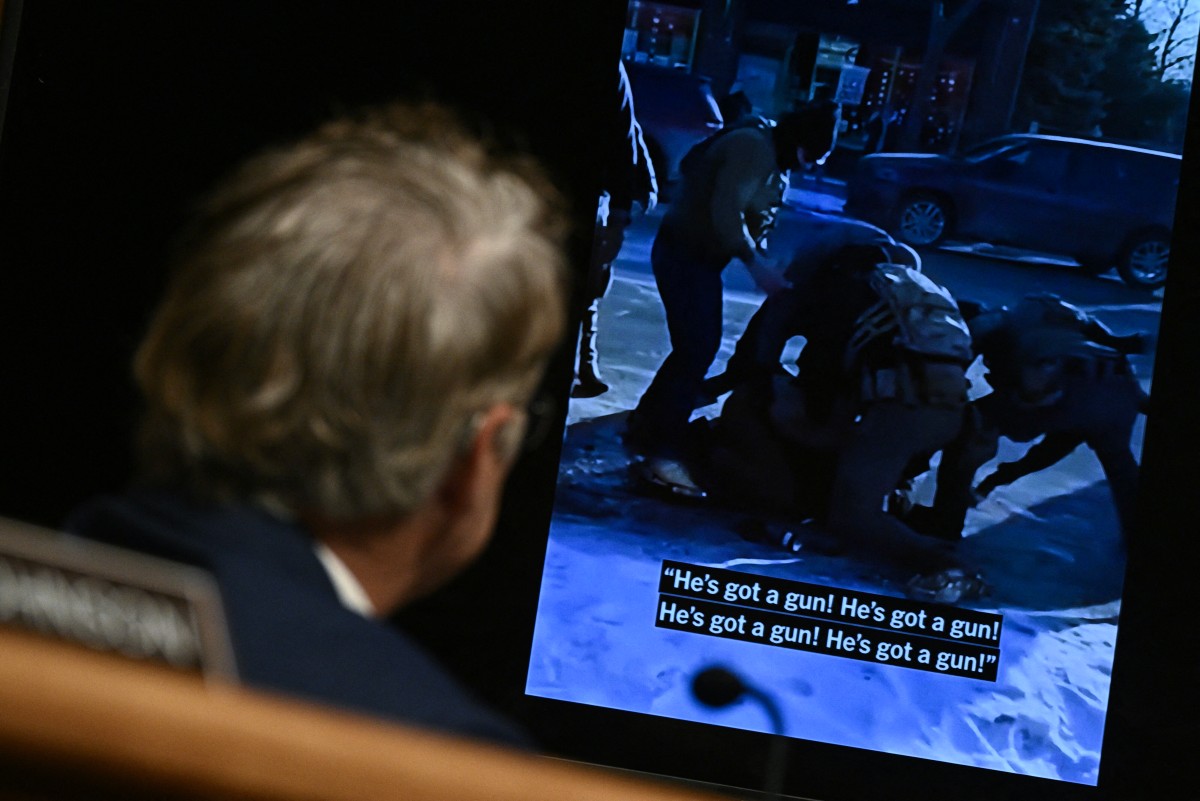International
‘Gaby’ Carrizo, the unpopular ruling presidential candidate for the Presidency of Panama

José Gabriel Carrizo, the current Panamanian vice president, better known as ‘Gaby’, aspires to the historic Democratic Revolutionary Party (PRD) to lead Panama again for another five years after next Sunday’s elections, in which he participates with low popularity rates.
Carrizo, the ruling party’s candidate for the Presidency in conjunction with the Molinera party, and who this Wednesday closes his campaign in Panama City, is at the queue of the polls among the five candidates with options, although the strong base of the PRD in the country, the party of the iconic general Omar Torrijos, cannot be underestimated.
The polls that ‘Gaby’ does lead are those of rejection, with between 50% and 60% of the participants in some surveys who assured that they would “never” vote for him.
“Don’t eat a story (…) we are going to win the elections in a forceful way,” Carrizo said on Wednesday at the closing ceremony of the campaign before a mass of members of the PRD, and assured that the polls “really that they do not want to publish” predict that triumph.
A lawyer by profession, he has been a member of the majority party of Panama since 2007 and in 2019 he became the youngest vice president in Panamanian history at just 36 years old, after Laurentino Cortizo won that year’s elections.
‘Gaby’, 40, has had a lot of visibility within the Executive, which has led to it being popularly pointed out as one of the main faces behind the different scandals that have enveloped the current Government since its inception and that increased with the COVID-19 pandemic.
That year, Carrizo defended the transparent management of the $1,457 million approved during 2020 to combat the pandemic in Panama.
Carrizo has also had a step run over by the presidential debates or during interviews with some media, when making mistakes when explaining his proposals, defending for example that “Panama is safer than France” or that they want to “pass Panama from the first world to the third world.”
This triggered a wave of jokes on social networks that the same candidate used in his favor to campaign with humor, a tone of his political strategy.
In the third and final debate he made the decision not to participate, arguing that José Raúl Mulino, candidate who leads the polls for the Realizing Goals party and substitute for the disabled former President Ricardo Martinelli (2009 – 2014), did not join the debate, as he had not done in the previous ones.
“In the case of the vice president candidate, I think he was looking for an excuse not to come because the last interventions have really been disastrous for him,” José Blandón, the running mate for vice president of Rómulo Roux of Democratic Change, told EFE after the debate.
The youngest of the eight candidates for the Presidency, starts with his main proposal to reduce the working week by maintaining 40 hours in fewer days, a system similar to the one already implemented in some European countries: “Work four days, pound three,” he says on his advertising posters and social networks.
Carrizo has given continuous mass baths in the provinces of Panama during his campaign explaining his electoral promises, which include that cut in working days, salary increases – including for security groups -, free medicines and promotion of tourism, among others.
“When you ask how much 4×8 is (referring to the ruling you had in one of the debates by saying 40 and not 32) answer that there are a thousand sticks (tickets) for your pocket,” the candidate shouts eagerly in one of his videos.
International
Florida judge sets 2027 trial in Trump’s $10 billion lawsuit against BBC

A federal judge in Florida has scheduled February 2027 for the trial in the lawsuit filed by U.S. President Donald Trump against the BBC, in which he is seeking $10 billion in damages for defamation.
Trump accuses the British broadcaster of airing a misleading edit of a speech he delivered on January 6, 2021, which, he says, made it appear that he explicitly urged his supporters to attack the U.S. Capitol in Washington.
The president filed the suit in December in federal court in Florida, alleging defamation and violations of a law governing business practices when the program was broadcast ahead of the 2024 election.
Trump is seeking $5 billion in damages for each of the two claims.
Lawyers for the BBC unsuccessfully asked the court to dismiss the case, arguing that Trump had not suffered a “legally recognizable harm,” since the investigative program Panorama, which included the edited footage, aired outside the United States.
International
Head-of-state diplomacy key to guiding China–U.S. ties, Beijing says

Head-of-state diplomacy plays an irreplaceable strategic guiding role in China–United States relations, Chinese Foreign Ministry spokesperson Lin Jian said on Thursday during a regular press briefing, when asked about high-level exchanges between the two sides.
Lin added that in a recent phone call, U.S. President Donald Trump once again expressed his intention to visit China in April, while Chinese President Xi Jinping reiterated his invitation.
Both sides remain in communication regarding the matter, the spokesperson said.
Lin noted that the essence of China–U.S. economic and trade ties lies in mutual benefit and win-win outcomes.
“Both parties should work together to implement the important consensus reached by the two heads of state, injecting greater certainty and stability into China–U.S. economic and trade cooperation, as well as into the global economy,” he said.
International
Trump administration to end special immigration operation in Minnesota

The administration of Donald Trump is bringing to a close its special operation targeting illegal immigration in the northern state of Minnesota, border czar Tom Homan announced Thursday, following weeks of unrest and the fatal shootings of two activists by federal agents.
Thousands of federal officers had been deployed to Minnesota in December to carry out large-scale raids against undocumented immigrants.
The operations triggered strong reactions from residents and advocacy groups, leading to daily confrontations and the deaths of two people who were shot by federal agents.
“I proposed, and President Trump agreed, that this special operation should end in Minnesota,” Homan said during a press conference in the state capital, Minneapolis.
“A significant drawdown began this week and will continue into next week,” he added.
Homan indicated that similar enforcement efforts could be launched in other cities.
“Next week we will redeploy the agents currently here back to their home stations or to other parts of the country where they are needed. But we will continue to enforce immigration laws,” he said.
-

 Central America5 days ago
Central America5 days agoGuatemala isolates Barrio 18 leader after attacks that killed 11 police
-

 International3 days ago
International3 days agoU.S. Health Department says CDC grants no longer match agency priorities
-

 International2 days ago
International2 days agoOver 50 Civil Groups Urge House to Impeach DHS Secretary Kristi Noem
-

 Central America2 days ago
Central America2 days agoGuatemala to Phase Out Longstanding Medical Cooperation Agreement with Cuba
-

 International3 days ago
International3 days agoDespite homicide drop, overall deadly violence remains high in Mexico: study
-

 International3 days ago
International3 days agoICE Arrests Reach 379,000 Under Trump, Testimony Shows Amid Minnesota Shootings
-

 International3 days ago
International3 days agoMEPs Approve Plan That Could Fast-Track Rejection of Some Asylum Claims
-

 International3 days ago
International3 days agoSheinbaum Urges Mexico to ‘Jealously’ Guard Sovereignty at Air Force Anniversary
-

 International3 days ago
International3 days agoJet Fuel Crisis Hits Cuba: Flights Disrupted, Air Canada Cancels Services
-

 International2 days ago
International2 days agoNew York’s New Archbishop Names Óscar Romero as His Favorite Saint
-

 International16 hours ago
International16 hours agoHead-of-state diplomacy key to guiding China–U.S. ties, Beijing says
-

 International3 days ago
International3 days agoMexico Rises Slightly to 141st in Global Corruption Perceptions Index 2025
-

 International16 hours ago
International16 hours agoTrump administration to end special immigration operation in Minnesota
-

 International16 hours ago
International16 hours agoFlorida judge sets 2027 trial in Trump’s $10 billion lawsuit against BBC
-

 International2 days ago
International2 days agoExclusive Tucson Neighborhood Shaken by Disappearance of Savannah Guthrie’s Mother
-

 International3 days ago
International3 days agoChile Unveils Latam-GPT to Give Latin America Its Own AI Model


























